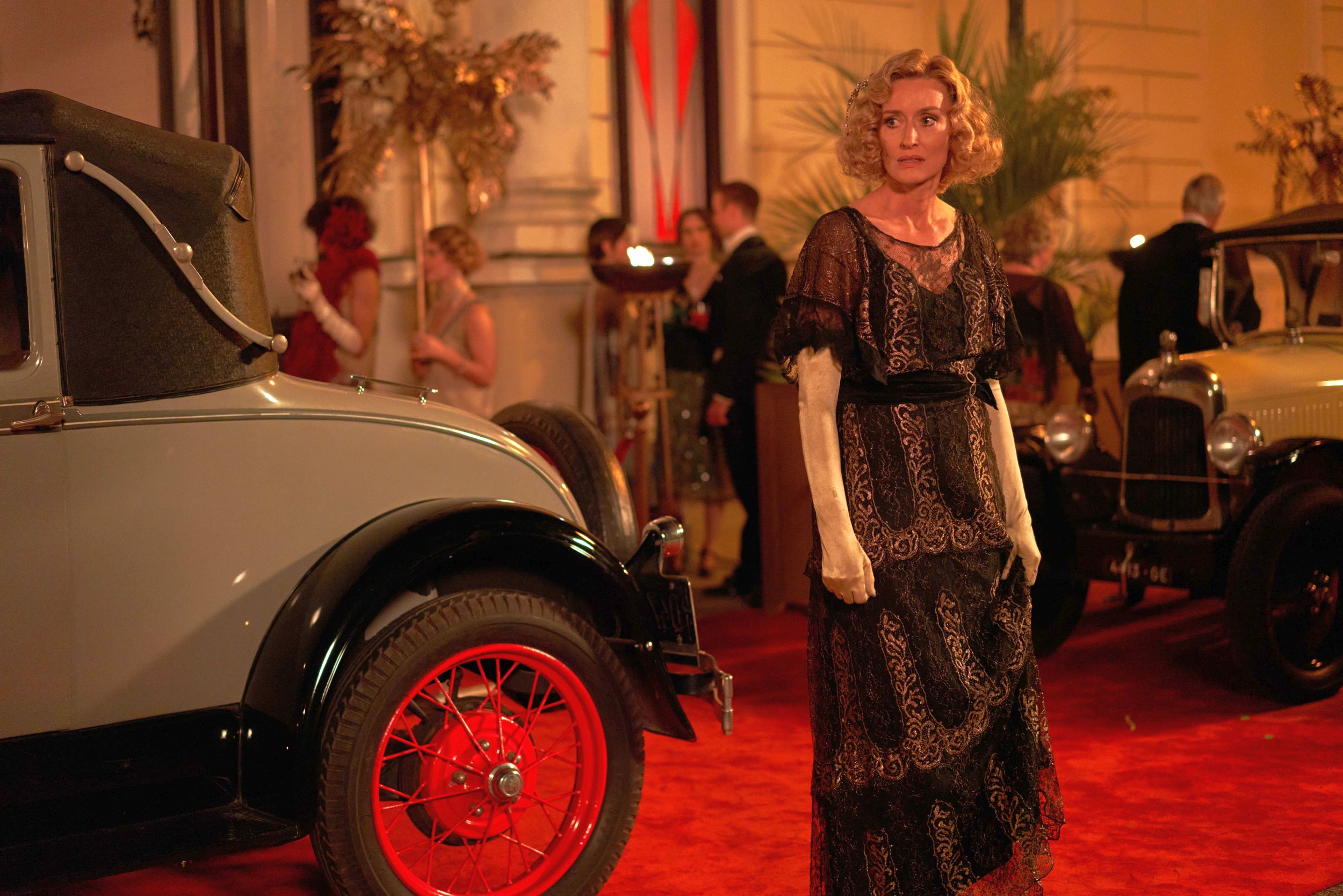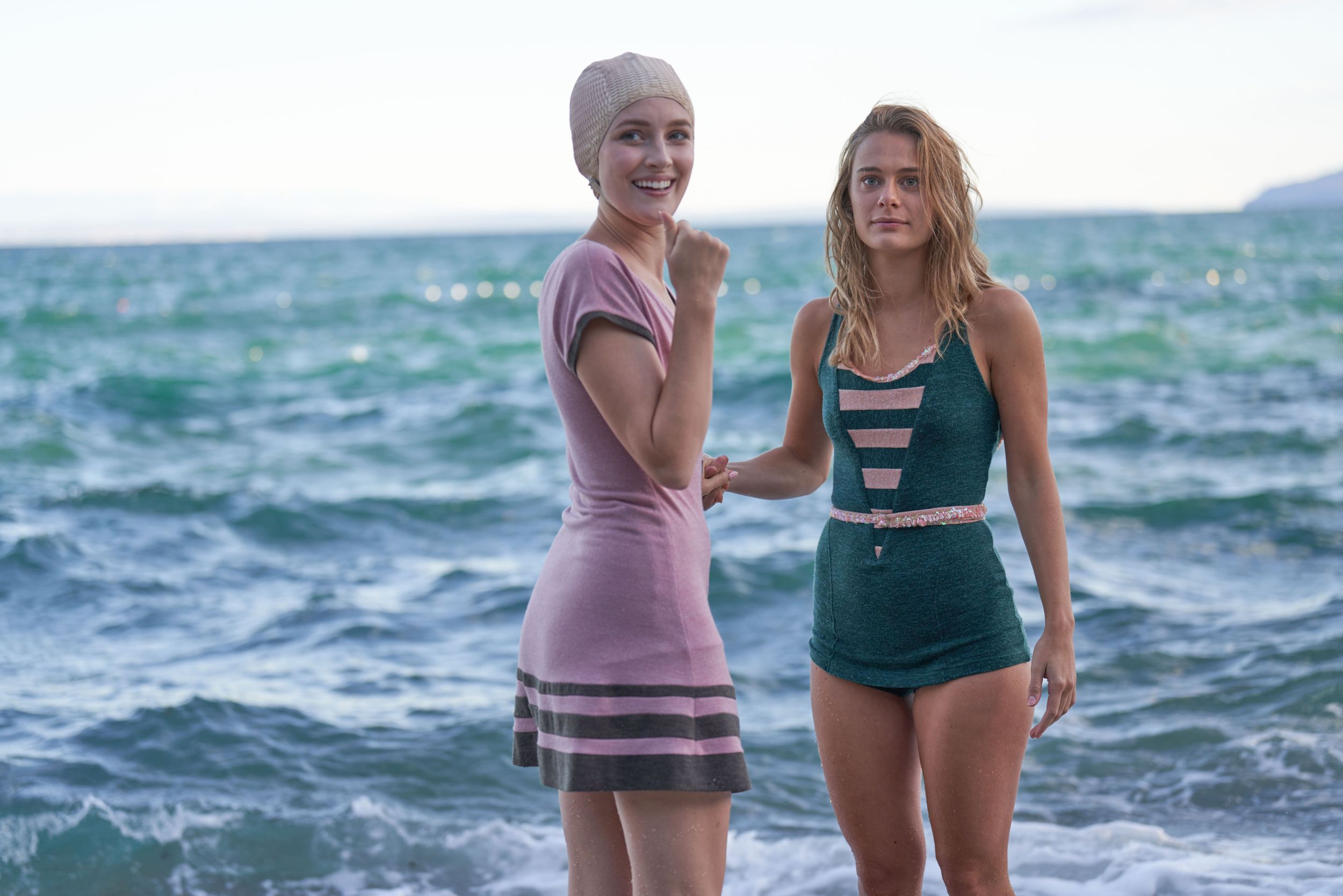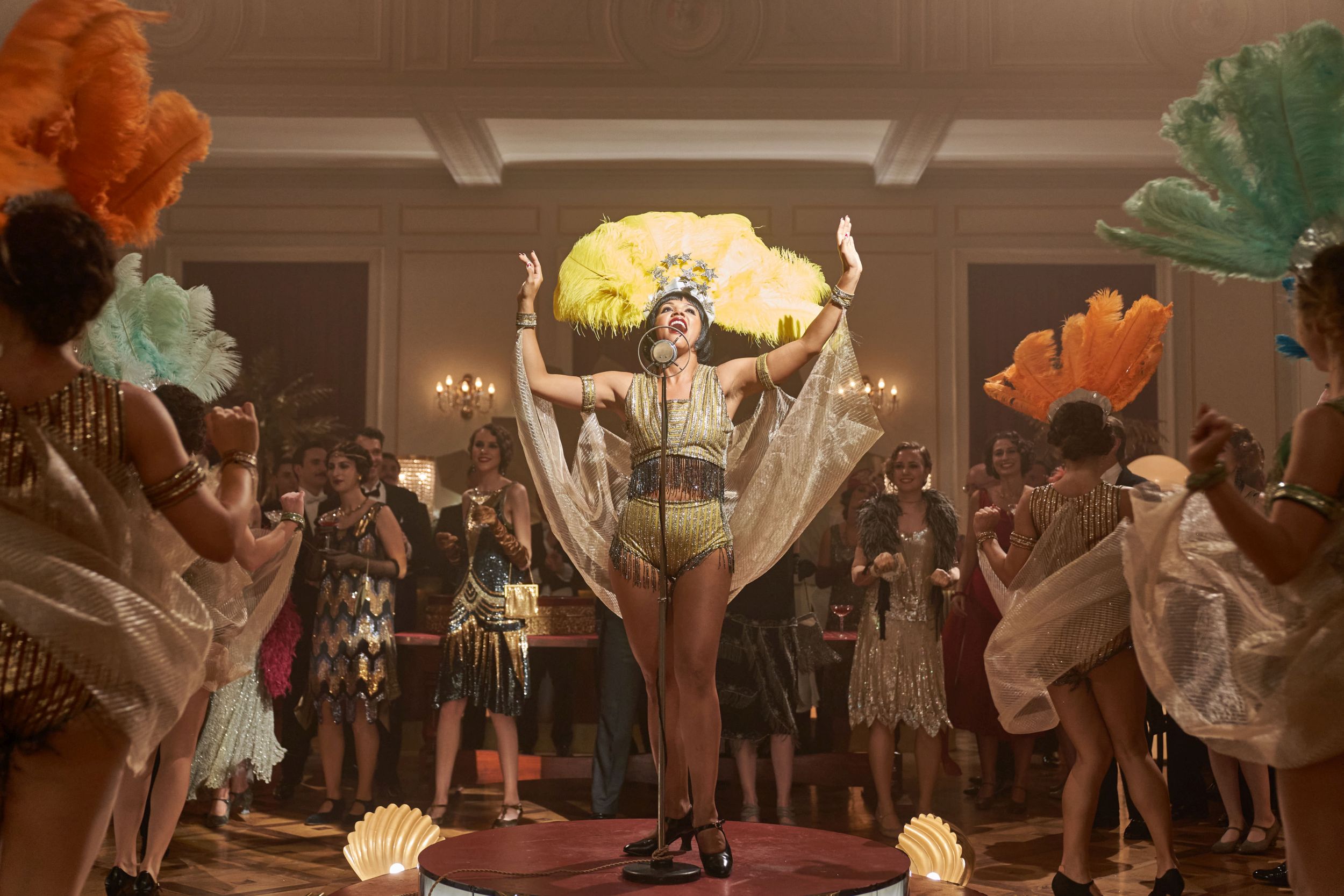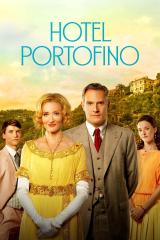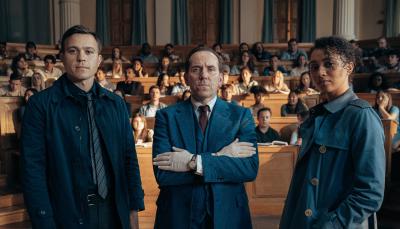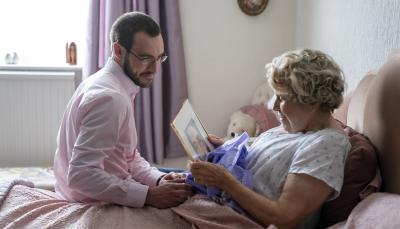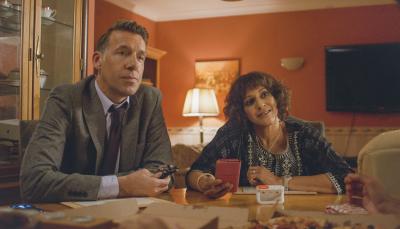'Hotel Portofino’s Matt Baker Talks About the Show’s Inspiration & Modern Parallels
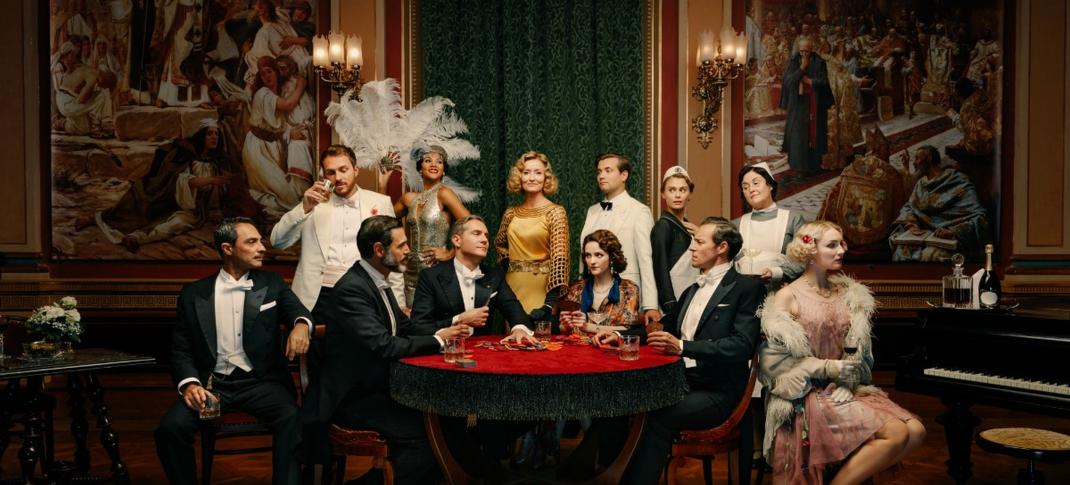
Hotel Portofino Season 2 Key Art
Eagle Eye Drama Ltd
The luscious Hotel Portofino is both charming and heartfelt and has an opulent setting, a robust and talented cast, and quiet but compelling stories. As Eagle Eye Drama’s first original English-language drama, it had a lot resting on its gentle shoulders and managed to garner a respectable audience. Centered around an aristocratic British woman and her family running a hotel for well-to-do (mostly) British people in 1920s Italy, the focus also includes the dramas of the hotel guests and staff and the looming influence of fascism. Despite the serious themes woven through, this show is undeniably sweet and cozy.
Scriptwriter Matt Baker graciously entertained our queries about Hotel Portofino’s origins and the direction of its second season. Baker’s previous television credits have been mainly adaptations: a string of Walter Presents hits including Professor T, Before We Die, and Suspect. Hotel Portofino is his first original series. Baker weaves an interconnected tale of dreamers and schemers where most characters have something to hide, and everyone has something to lose. The first season was a clear ensemble piece, but Baker reports that Season 2 narrows to concentrate on the central characters.
So pour yourself a cup of tea (or one of Lady Latchmere’s Italian lemonades) and read on!
The following interview has been edited and condensed for clarity.
Telly Visions: The show is very luxurious very escapist. But there’s also that clear backdrop of Fascism, which is intentional. Why was that important to you to feature?
Matt Baker: We didn’t start by saying we wanted to do something about Italy under Mussolini; we started with the idea of wanting to do a period piece about Italy, but with British characters in it. It was developing something based on the idea of this incredible location. Why would a British family be there in this period? We knew we broadly wanted to base it between the wars, and then it was just a question of filling in the blanks. If you start with the premise of an aristocratic British woman [Bella, played by Natascha McElhone], what is her reason to be in Italy? What would she be experiencing at the time?
From a writer’s point of view, what you’re looking for with projects is texture and nuance. It’s a bit like composing music or painting; it’s the ability to draw between light and shade or to change tones because that makes it interesting for an audience. Having that background against the domestic drama of the hotel and the family story is a very interesting dynamic to play with. In Season 2, we’ve contrasted that a bit more deeply. [Fascism] was more of a whispered suggestion in Season 1; it was there, but it was more [focused] around a specific character.
Some characters are going to get much more deeply involved politically. One of the major storylines in Season 2 is around Nish (Assad Zaman) and Gianluca (Rocco Fasano), and Nish gets caught up in something much darker and more political and the consequences for individuals. As a writer, the ability to play between macro and micro, how individuals are caught up in big world events, is exciting. It also adds different dimensions to characters. If you only see a character in a domestic context, it limits what you can do. [Exterior conflict] gives the capacity for much greater variation. We’ve turned that up a lot in Season 2 for Hotel Portofino.
TV: What is it about the British experience in 1920s Italy that drew you to that?
MB: I’m fascinated by national stereotypes, how other nations see the British, and how the British see other nations. I’m particularly interested in the Northern European v. Southern European divide — you’ve got the hot-blooded Mediterraneans versus the cool-blooded Northern people. British people, in particular, and the manners of behavior of that period are interesting to me because I was born in the late 1960s and brought up in the ’70s and ’80s. The world I lived in had a hangover from the Edwardian, the Georgian times, and the early 20th century. The customs at the school I went to were not very different from the 1920s and around the First World War. There’s a strong flavor of the British culture that I was brought up in.
Seeing how British people of that type interact with people who are very different in a different context is fascinating. It’s that sense of liberation, of being in a very different environment and how that affects the way people behave. It’s an irresistible contrast: the Italian cuisine, the culture, the beautiful freedom of it, but also the restrictions of Catholicism and fascism; it’s just a delicious mix. It’s always been a huge amount of fun to write Hotel Portofino because there are all these dimensions to consider when the characters are interacting.
TV: How much of today’s political landscape influenced your story, if at all?
MB: It wasn’t consciously. There are these obvious parallels, but people react to them differently. I’m trying to avoid a sense that I’m trying to say one way is good, one way is bad. Within the framework of the story, there are what I would call progressive characters, and they’re ones we’d call conservative characters. Some people think I’m going to be sympathetic to the progressive characters, but I don’t see it that way. For instance, Cecil (Mark Umbers) is one of my favorite characters because he has so many flaws and weaknesses and incredible charm. He’s funny; he’s got redeeming characteristics — although that will be tested to the limit in Season 2, and we’ll see if the audience still feels that way.
We’re all aware of the polarization of political debate in the world at the moment and the battles fought over values. I think the 1920s [have] some very obvious parallels, though the world has moved on significantly. But it was a very interesting time, with women liberated to a certain degree to do new things in society by the upheavals caused politically by a world war. Then, the growing power of the individual versus the collective; I think that’s such an important theme for us at the moment because of the whole debate around social media. I’m not trying to point the audience toward a moral conclusion. For a writer, it’s an interesting space to play around in because [in] so many of the issues, you can see a pattern or an echo of some of the debates we’re having today.
TV: What was your experience writing for a larger ensemble?
MB: That has changed more between Season 1 and Season 2 of Hotel Portofino; it was more of an ensemble piece in Season 1. What we tried to do in Season 2 was to focus more on the core cast. There are still guests there, but when we originally set it up, there was the idea that each guest would have their own storyline. In Season 1, you do have that, even though some of the storylines are pretty minor. The guests have moved a bit more into the background this time. Established guests like Claudine (Lily Frazer) and Count Albani (Daniele Pecci) are still part of the main group and my story. But new guests are much more for background flavor.
It’s a lot of fun to write for an ensemble cast because you’ve got lots of different storylines to play around with, and you can find nice points of intersection between them. But it sometimes becomes a bit confusing for the audience. Where are you asking me to look? This time, we’ve tried to bring Bella more front and center. We’ve tried to make her the planet around which all the other satellites move. It’s great fun to write; there are always very meaty storylines, and you’ve got that lovely interplay of light and shade. You’ve got Betty (Elizabeth Carling) and Billy (Louis Healy) and their undertow of humor, and then you’ve got Claudine and the dimension of glamour, and there’s always a musical number. So you’ve got different dimensions to play with, as well as the domestic drama and the more macro-political drama of fascism in Italy. For a writer, it’s a bit of a gift.
TV: How are you able to juggle writing multiple series at the same time?
MB: There are different phases to writing, and the biggest part is the prep and the planning. Often, the prep of the next thing overlaps with the sweep up on the last. Typically, I would be rewriting a few scenes for a previous project as I’m starting to get into planning storylines for the other. I’m very seldom writing [two projects at once]. That’s the logistical answer.
The other answer is: I’m making up for lost time. I came to this quite late. I’ve always wanted to write. I was trying to write for different mediums: I was a journalist, I was trying to write novels, I’ve written poetry. Having found this medium [of television] quite late in my career progression, I’ve got a lot of energy and creativity to direct into the medium.
The other thing I’d say is I’m a journalist by trade. In my journalistic background, I’m used to working to tight deadlines and delivering, so it’s the way I work. As you go along, you don’t want to hurry stuff; you want to make sure that stuff is properly matured and you’ve got enough processes of rewriting to make sure something is as tight as it can be. But that’s the great pleasure of working in TV. You get feedback from the director, cast, and executive producers; you get all these different voices that can help you shape stuff. It’s a great time to be writing and working in the business because there’s so much, at least until recently, there was so much new opportunity.
Hotel Portofino Season 2 airs on Sundays, beginning October 15, at 8 p.m. ET on most PBS stations (check your local listings) and the PBS Masterpiece Channel via Amazon’s Prime Video. All episodes of Seasons 1 and 2 are available to stream via PBS Passport for members.

